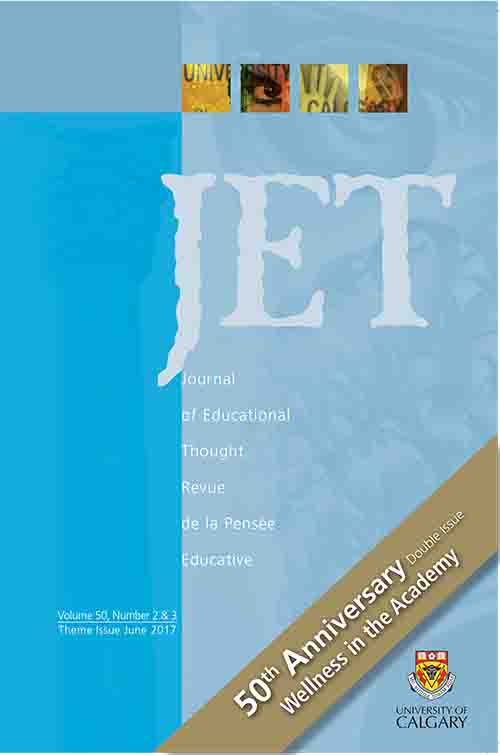An Academic’s Ethical Obligations for Self-care
DOI:
https://doi.org/10.55016/ojs/jet.v50i2%20&%203.44316Abstract
aAcademics have experienced increased stress in recent decades due to changing workplace demands. Chronic levels of high stress can lead to poor psychological, physical, productivity, and relational outcomes. While academics have ethical guidelines for research, there is no overarching set of ethical guidelines for other aspects of academic responsibility. We argue that many of the ethical guidelines for psychologists can guide academics in ensuring appropriate self-care choices. Self-care requires ongoing practices—such as boundary setting and prioritizing of career and personal goals, as well as practices for states of extreme stress—such as utilizing an ethical decision-making process. Institutions also have a critical role in supporting academics to engage in self-care practices.
Downloads
Published
Issue
Section
License
The Journal of Educational Thought retains first publication rights for all articles. The Journal grants reproduction rights for noncommercial educational purposes with the provision that full acknowledgement of the work’s source be noted on each copy. The Journal will redirect to the appropriate authors any inquiries for further commercial publication of individual articles. All authors wishing to publish in JET will be asked to fill in and sign a Consent to Publish and Transfer of Copyright agreement.
Authors must affirm that any submission to JET has not been and will not be published or submitted elsewhere while under considration by JET.

